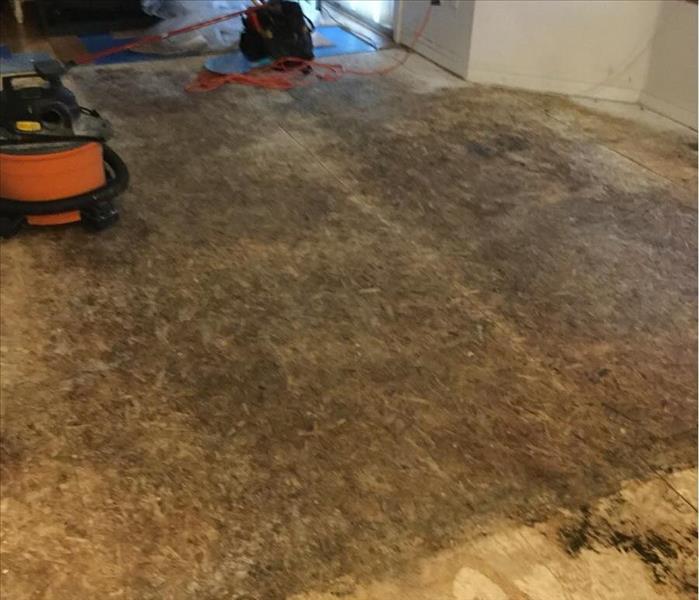Introduction
Water damage can wreak havoc on a home or business, leading to costly repairs and health risks if not addressed promptly. Whether caused by flooding, leaks, or burst pipes, the aftermath of water damage can linger long after the initial event. Understanding the long-term effects of water damage and how to mitigate them is crucial for homeowners and property managers alike. This article delves into the potential consequences of water damage, effective mitigation strategies, and best practices to safeguard your property from future incidents.
The Long-Term Effects of Water Damage
Water damage can leave lasting impressions on structures, materials, and occupants in various ways.

Structural Integrity Compromise
One of the most significant long-term effects of water damage is the compromise of structural integrity. When wood absorbs moisture, it swells and can eventually warp or weaken. Over time, this can lead to:
- Sagging Floors: Floors may begin to sag underfoot as support beams lose strength. Cracked Walls: Walls can develop cracks due to shifting foundations. Roof Damage: A compromised roof may result in leaks or cave-ins.
Mold Growth: A Hidden Menace
Mold thrives in damp environments and can spread quickly if left unchecked. The long-term effects include:
- Health Issues: Mold spores can trigger allergies, asthma attacks, and other respiratory problems. Property Devaluation: Homes with mold issues may suffer value depreciation.
Fire Damage Risks
Interestingly, water damage can lead to fire hazards. Electrical systems exposed to moisture can short-circuit or corrode over time:
- Short Circuits: Faulty wiring may ignite fires when exposed to water. Corrosion: Appliances that have been exposed to water can degrade.
Identifying Water Damage Early
Recognizing the signs of water damage early on is key to preventing its long-term effects.
Visual Indicators
Look for these telltale signs:
- Stains on walls Peeling paint Warped floors
Odor Detection
A musty smell often indicates hidden moisture problems that could lead to mold growth.
Immediate Actions After Water Damage Occurs
When you discover water damage, acting fast is essential.
Shut Off the Water Source
If a leak causes your problem, locate and shut off the primary valve immediately.
Remove Standing Water
Utilize pumps and wet vacuums to remove standing water as soon as possible.
The Importance of Professional Assessment
Engaging professionals ensures that all aspects of the issue Smoke and soot cleanup Auburn are examined thoroughly.
Comprehensive Inspections
Professionals have tools like moisture meters that help identify hidden damp areas that homeowners might miss.
Expert Mold Remediation Services
Mold remediation experts utilize specialized techniques for removing mold safely while minimizing further contamination risks.
Repairing Structural Damage Caused by Water
After addressing immediate concerns, focus shifts towards structural repairs.
Assessing Structural Integrity
Before initiating repairs:
Inspect beams and supports for any signs of deterioration. Conduct a complete evaluation of drywall and insulation materials affected by water exposure.Replacement vs. Repair Decisions
Deciding whether to repair or replace damaged materials should be driven by:

- Extent of damage Cost implications Time factors
Mold Remediation Strategies: Best Practices for Homeowners
To combat mold effectively post-water damage:
Containment Measures
Isolate affected areas using plastic sheeting before beginning work on mold removal.
Professional Help vs DIY Methods
While some homeowners prefer tackling small mold issues themselves using vinegar or baking soda solutions, larger infestations require expert intervention.
Long-Term Monitoring Techniques Post-Water Damage Recovery
Once repairs are made, monitoring becomes essential for ensuring long-term safety.
Routine Inspections
Regular inspections should be scheduled every few months to catch any potential recurring issues early on.
Moisture Control Systems
Using dehumidifiers in damp areas helps maintain optimal moisture levels throughout your property (ideally between 30%-50%).
Preventive Measures Against Future Water Damage
Taking steps Mold inspection Auburn now will save you headaches later! Consider implementing these strategies:
Gutter Maintenance
Ensure gutters are cleared regularly so rainwater drains away from foundations properly; consider installing guards if necessary!
Landscaping Adjustments
Slope landscaping away from foundations prevents pooling around your home during heavy rains!
Insurance Policies: Understanding Coverage for Water Damage Claims
Understanding what insurance covers regarding different types of damages is crucial in times like these!
Homeowners Insurance Basics
Most homeowner policies cover sudden accidents but not gradual wear-and-tear! Familiarize yourself with specific terms related Commercial water damage restoration Auburn directly related claims!
Flood Insurance Clarifications
Flood insurance isn't typically included in standard policies—consider purchasing separate coverage if living within high-risk flood zones!
FAQs About The Long-Term Effects of Water Damage and How to Mitigate Them
li16/ol2/li17li17/ol3li18# Can I handle minor mold issues myself?- Small patches might be manageable using household items like vinegar/baking soda—but larger infestations warrant professional help!
- Standard policies usually exclude floods—be sure you’ve got additional flood coverage if needed based where you live!
- For comprehensive restoration services seek qualified contractors specializing in both restoration & remediation (mold!) efforts alike!
Conclusion: Safeguarding Your Property From The Long-Term Effects Of Water Damage
Water damage poses serious threats—not just immediately after an incident but also lingering impacts months down the line affect structural integrity/mold development/fire hazards! Therefore understanding “the long-term effects” gives valuable insight into proactive measures one might undertake before disaster strikes again—also highlighting importance engaging professionals whenever necessary throughout entire process too! By adopting preventative strategies today—you’ll protect against unwanted future headaches down road while preserving peace mind knowing home remains safe secure healthy environment altogether!